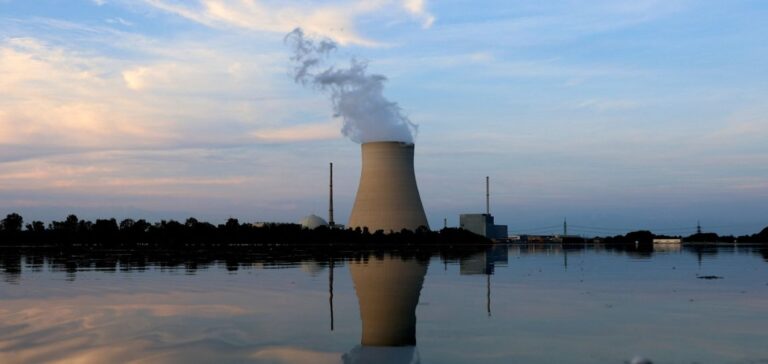Isar 2, with its 1400 MWe pressurized water reactor, was one of the last three German nuclear power plants to close on April 15 last year. PreussenElektra, responsible for dismantling eight nuclear power plants in Germany, had submitted the application to dismantle and decommission the plant in July 2019. Since the Isar 2 shutdown, all 193 fuel elements have been removed from the reactor and placed in the plant’s fuel storage pool. At the beginning of the year, the primary cooling circuit was decontaminated.
Key dismantling stages
Initial dismantling work will include removal of the main cooling pumps. The main cooling pipes will then be separated from the reactor to begin the first major dismantling project, namely the removal of the reactor internals. On March 21, the Bavarian Ministry for the Environment and Consumer Protection granted the necessary approval to start dismantling in accordance with the German Atomic Energy Act. Isar 2 was the last of PreussenElektra’s power plants to cease operations.
Progress towards complete dismantling
With Isar 1, Brokdorf and Grohnde closed on December 31, 2021, and the Isar 1, Stade, Unterweser and Würgassen plants already decommissioned, all of PreussenElektra’s nuclear facilities are now in various stages of decommissioning. “Seven of our eight power plant blocks are currently being dismantled,” said Guido Knott, CEO of PreussenElektra. With the knowledge acquired and an optimized approach, dismantling at Essenbach should be completed by the end of the 2030s, freeing up the site for new uses.
Isar 2 in the Bavarian Energy Context
Before its closure, Isar 2 produced around 18% of Bavaria’s electricity, making it Germany’s most powerful nuclear power plant, and one of only two in the world to have generated over 400 billion kilowatt-hours of electricity. Alongside Isar 2, there are four other nuclear power plants currently being dismantled in Bavaria: Isar 1, Grafenrheinfeld and Gundremmingen Blocks B and C.
The closure of the last nuclear power plants in April 2023 was criticized by Bavaria’s Minister of the Environment, Thorsten Glauber, who advocated a temporary extension of their operation as a climate-friendly bridge solution. “At a time of global challenges, every kilowatt-hour of energy we can generate ourselves is needed. With Isar 2, it would still be possible to generate affordable, CO2-free electricity in Bavaria,” he said, criticizing the federal government’s decision to rely primarily on more coal.






















